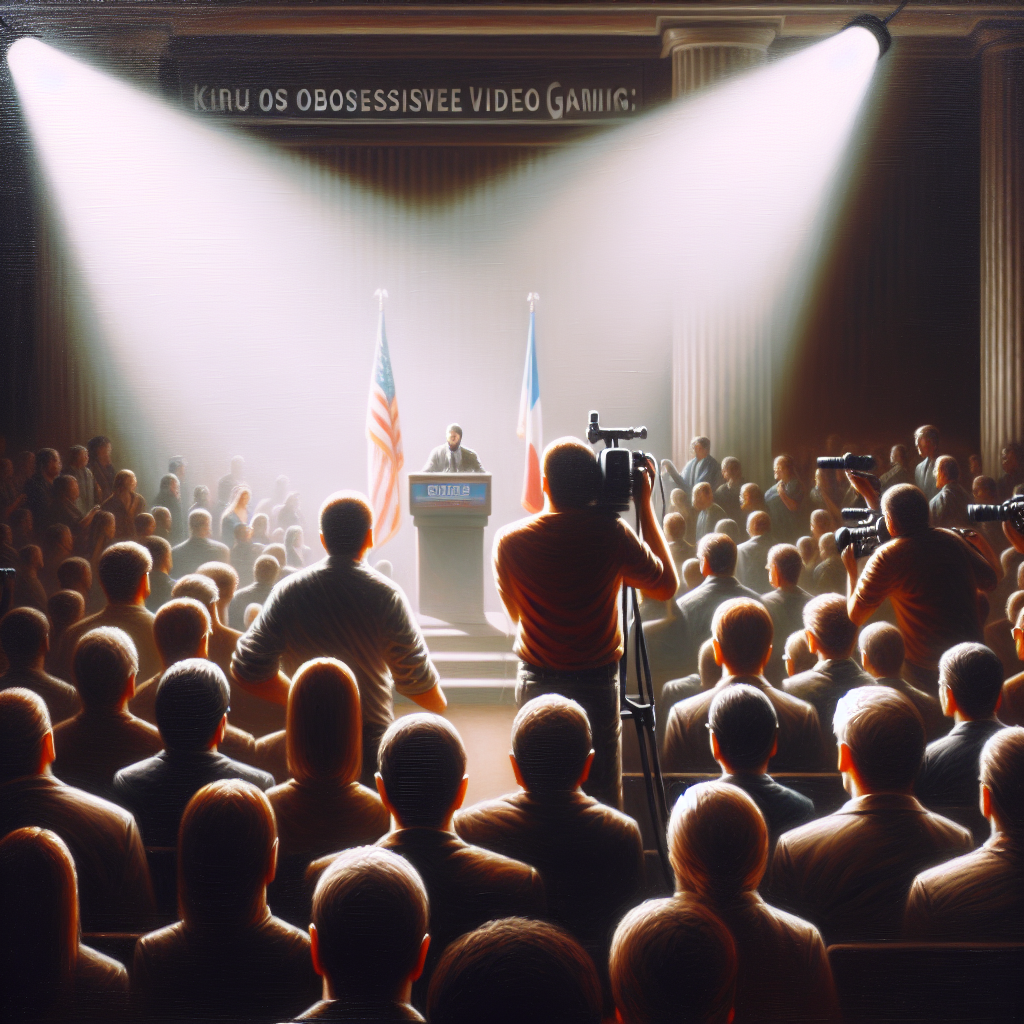Introduction
The tragic and untimely death of Charlie Kirk, a prominent conservative activist and influencer, has become a focal point in the ongoing discourse surrounding gun culture and political polarization in America. However, the narrative took an unexpected turn as digital culture and the concept of “gamer brainrot” began to intersect with the unfolding events. This article delves into the intricate dynamics of Kirk’s death, the ensuing political turmoil, and the surprising role of online gaming culture.
The Incident and Political Repercussions
Charlie Kirk’s fatal shooting has not only been a personal tragedy but also a catalyst for intensified political debate across the United States. In the immediate aftermath, the incident exacerbated existing tensions between Democrats and Republicans. In Congress, heated exchanges highlighted the deep-seated divisions over gun rights, with each side attributing blame to the other for the pervasive culture of violence.
While the political ramifications were predictable, the unexpected involvement of online communities and digital memes added layers of complexity to the situation. As discussions unfolded, many were quick to latch onto the potential influence of gaming culture, leading to widespread speculation and misinformation.
Understanding Gamer Brainrot
The term “gamer brainrot” has surfaced prominently in discussions surrounding Kirk’s death. It refers to a state of mind where individuals become excessively immersed in gaming culture, often leading to a distorted perception of reality. This phenomenon, while not new, has gained attention in recent years as gaming communities grow and evolve.
In the case of Charlie Kirk, some speculated that the alleged shooter, Tyler Robinson, was influenced by video game culture, a claim that was heavily debated and largely debunked. Despite this, the narrative persisted, fueled by the sensationalism of digital media and the rapid spread of memes.
The Role of Memes and Misinformation
Memes have become a powerful tool in shaping public opinion and spreading information—both true and false. In the context of Charlie Kirk’s death, video game-referencing memes initially appeared to offer insights into the motives behind the tragedy. However, they quickly proved to be misleading, serving as a red herring that distracted from the core issues at hand.
This situation underscores the challenges of navigating the digital landscape, where information can be easily manipulated and misinterpreted. For many, this incident has highlighted the need for critical thinking and media literacy in an age where online narratives can significantly influence real-world perceptions and actions.
Moving Forward
As the dust settles, it is crucial to refocus on the substantive issues raised by Kirk’s death, such as gun control, political rhetoric, and the impact of digital culture on societal behavior. While the association with gamer brainrot may have complicated the narrative, it also serves as a reminder of the multifaceted nature of modern societal issues.
In addressing these challenges, it is essential for policymakers, media professionals, and the public to engage in informed and constructive dialogue. By doing so, there is potential to foster a more nuanced understanding of the intersection between digital culture and real-world events.
FAQs
What is gamer brainrot?
Gamer brainrot is a colloquial term used to describe a condition where individuals become overly immersed in video gaming, leading to a skewed perception of reality. It is often associated with excessive gaming habits and can impact social and cognitive functions.
How did gamer brainrot relate to Charlie Kirk’s death?
The term was used in discussions surrounding the motives of the alleged shooter, Tyler Robinson, suggesting that gaming culture influenced his actions. However, this narrative was largely speculative and not supported by concrete evidence.
Why did memes become part of the discussion?
Memes referencing video games and the shooter surfaced online, initially contributing to the narrative that gaming culture played a role in the incident. These memes, while popular, often lacked factual basis and were seen as distractions from the main issues.
What are the broader implications of this incident?
Charlie Kirk’s death has sparked renewed debate over gun control and political discourse in the U.S. Additionally, it has highlighted the complexities of digital culture’s impact on societal behavior and the importance of media literacy in discerning fact from fiction.


